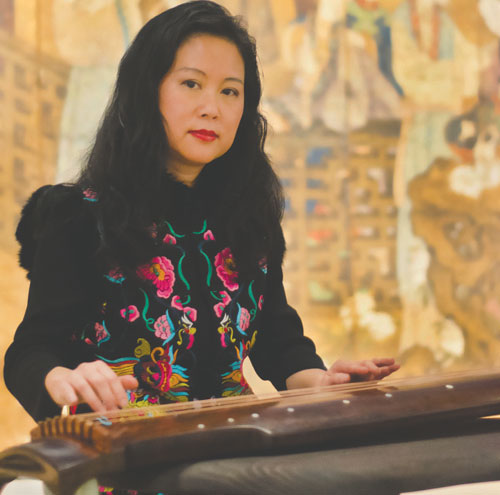SF concerts to honor guqin virtuoso
Updated: 2015-05-22 11:20
By Chang Jun in San Francisco(China Daily USA)
|
||||||||
|
Wang Fei, director of the North American Guqin Association, will perform guqin at a tribute concert on May 31 which is dedicated to commemorating the 120th birthday of late Chinese guqin master Zha Fuxi and the 70th anniversary of his recordings being collected at the Library of Congress. [Provided to China Daily] |
The Guqin and Its Culture - a commemoration of Chinese guqin master Zha Fuxi - will take place in the San Francisco Bay Area from May 31 to June 5.
The commemoration will include a concert, a master guqin class and lecture. The highlight of the series will be a concert on May 31 dedicated to the 120th birthday of the guqin master and the 70 years of his recordings now at the Library of Congress in Washington.
Organizers said the concert will serve as a platform through which guqin music lovers worldwide can strengthen their connections with the guqin, a seven-stringed zither that is China's oldest stringed instrument, and be able to understand better the essence of this piece of Chinese culture that is more than 3,000 years old.
Wang Fei, director of the North American Guqin Association (NAGA), who has 30 years of experience playing the guqin, said three generations of guqin masters - herself, her teacher Li Xiangting and grand teacher Zha Fuxi - will perform together with Zha playing some of his recorded masterpieces.
"I believe there are people pre-destinated to know the art of guqin who are struggling to find that opportunity to learn," said Wang Fei. "We do overseas promotions to offer these people a chance to get to know and become affiliated with this instrument."
Playing the guqin used to be a cultural ritual for elite scholars and literati in ancient China. Chinese philosopher and educator Confucius (551-479 BC) had included guqin music in his school's curriculum as one of the Six Classical Arts (rites, music, archery, riding, writing and arithmetic).
"Guqin is one of the oldest musical arts, yet it's the most vibrant," said 75-year-old Li Xiangting, the renowned Chinese guqin master, "It's so mature in the format that it can convey rich and sophisticated messages."
Several times in Chinese history guqin music was threatened with disappearing because there were so few players of the instrument. In the 1930s, guqin performer and scholar Zha Fuxi felt the need to preserve the art. He decided in 1945 to visit the United States, hoping his trip would revitalize guqin music and spread the art outside of China. Zha's first stop during that trip was San Francisco. He then traveled between coasts and finally convinced the Library of Congress of the importance of guqin music and had some of his masterpieces deposited in a collection there.
"Zha went further beyond his role as merely a guqin performer," said Wang. "He definitely is the cultural ambassador. His recordings collection in the US is so important in the history of guqin music - it's a milestone marking the beginning of guqin music becoming worldly."
As for Li Xiangting, a follower and student of Zha, preserving the history of guqin music and promoting it globally is what he inherited from his mentor.
Since the 1990s, Li has traveled extensively in Europe, Asia and the Americas to perform, teach and spread the cultural significance of the guqin. In China, his recordings were chosen for three consecutive years to accompany Chinese astronauts as China launched its spaceships starting in 2012.
In 2003, the United Nations Educational, Scientific and Cultural Organization declared the art of guqin to be a "masterpiece of oral and intangible heritage of humanity."
"This is a hard-earn honor granted for generations of guqin artists, for their painstaking efforts to preserve and widespread the vigorous nature of guqin," said Wang.
"I by nature am a laid-back type of person," said Wang, who used to work for a Beijing-based newspaper before earning her degrees in multimedia production in the US and settling down in the Bay Area.
Her love affair with the guqin can be traced back to 1985 when as a teenager she was fascinated with its distinctive tone and decided to learn to play. She brought her guqin to the US, and later established her guqin association, gave lectures about the guqin at several universities in California and became a guqin tutor.
junechang@chinadailyusa.com

 Journey of a migrant girl from village to ad world
Journey of a migrant girl from village to ad world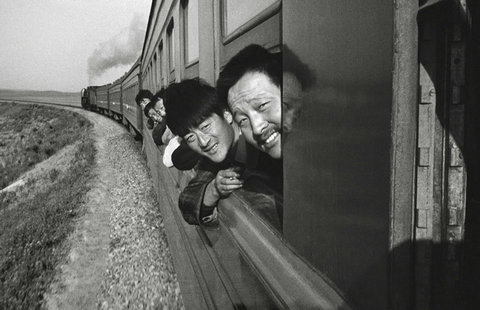
 Photographer captures Chinese on the train
Photographer captures Chinese on the train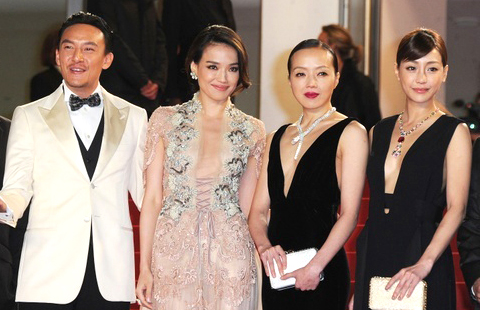
 Hou Hsiao-Hsien's The Assassin premieres in Cannes
Hou Hsiao-Hsien's The Assassin premieres in Cannes
 Top 10 highest-paid white-collar jobs in China
Top 10 highest-paid white-collar jobs in China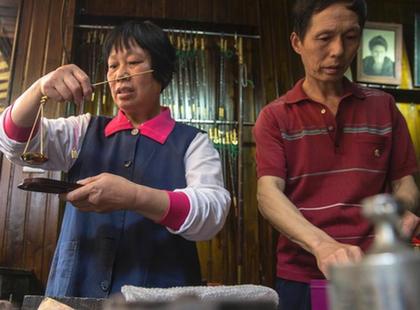
 The dying craft of balance scales
The dying craft of balance scales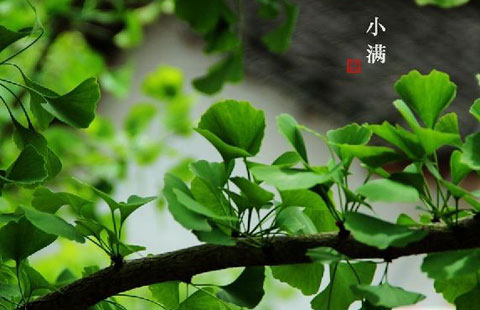
 Culture Insider: Six things you may not know about Grain Buds
Culture Insider: Six things you may not know about Grain Buds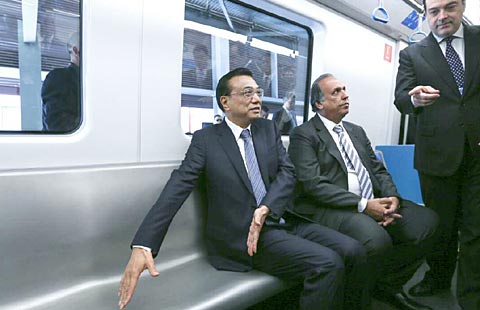
 Premier Li rides on new China-made train in Rio de Janeiro
Premier Li rides on new China-made train in Rio de Janeiro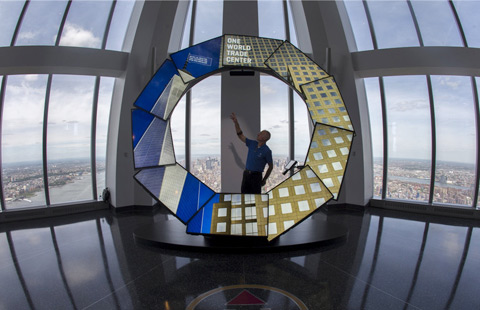
 NYC's new One World Observatory offers sweeping views of Manhattan
NYC's new One World Observatory offers sweeping views of Manhattan
Most Viewed
Editor's Picks

|

|

|

|

|

|
Today's Top News
Li: 'Great potential' for Sino-Colombian ties
Beijing responds to surveillance by US plane
Beijing sets out its rights after reports of incursion
China may have edge in race to build California's bullet train
US Senate votes to move forward fast-track trade legislation
Colombia runs into infrastructure bumps on road to prosperity
Premier Li arrives in Bogota to start official visit to Colombia
China is a global leader in renewable energy: Panel
US Weekly

|

|
